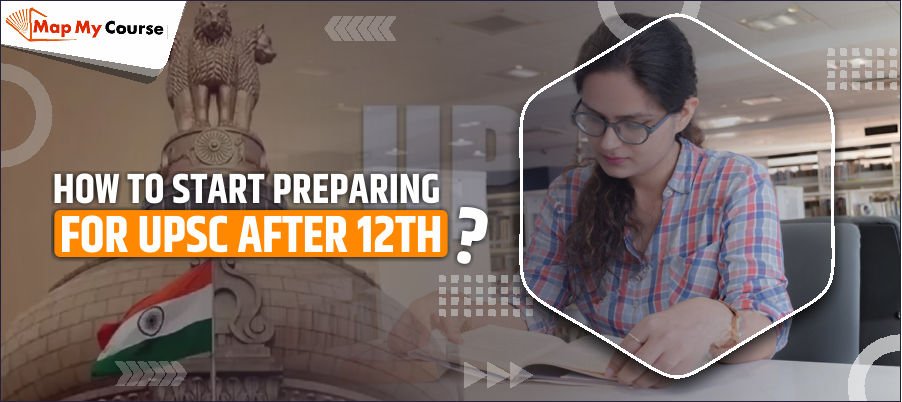Have you passed your 12th from the science stream with Physics Chemistry, and Maths as your major subjects? Are you now looking for attractive career options? The science stream is one of the toughest streams in 10+2 and it offers you so many career options you can choose from after the 12th you just need to get a relevant degree that’s all.
In this blog, we have done a lot of research to find some best career opportunities after 12th with PCM also, we have made a list of PCM Career Options With Salary After 12th to help you choose the best course for you.
Why Choose PCM In The 12th Science Stream?
PCM (Physics, Chemistry, Mathematics) is one of the best choices for students who find science, and technology interesting. It can open so many doors to high-paying jobs and demanding careers in the fields of engineering, aviation, data science, cybersecurity, and more. As compared to other streams PCM offers a wide range of career options.
Other major advantages of PCM are job security and growth. Careers in fields like AI, cybersecurity and aviation are expanding and offering exciting salaries. It is the perfect stream for students who want high-paying and in-demand career options after 12th Science PCM.
Career Options After 12th With PCM As Subjects?
There are many career options if you have completed 12th in the science stream, but in most cases, you need to pursue a higher degree to support your skills, below are the career options after 12th Science PCM:
1. Engineering
Engineering is a field that uses various concepts of science and mathematics to design, build and improve things we use in our daily lives, for example, buildings, machines, software and vehicles. Engineers solve real-world problems and create technology to make life easier. It is one of the popular choices for PCM students and offers many specializations.
| Top Careers |
|
| Top Courses |
|
| Salary Range | ₹6-12 lakhs per annum |
2. Architecture
Architecture is a field that blends art and science to design buildings, offices and different structures. It uses creativity and technical skills to create useful, safe and beautiful spaces. Architects plan and design buildings and make sure they are strong and durable also they ensure that it meets the people’s needs.
| Top Courses |
|
| Top Careers |
|
| Salary Range | ₹5-10 lakhs per annum |
3. Data Science & Artificial Intelligence
The field of Data Science and Artificial Intelligence (AI) deals with data, algorithms and machine learning in analysing information and decision-making, to create smart technologies. AI enables computers and machines to think, learn, and solve problems like humans. It powers technologies like voice assistants (Siri, Alexa), self-driving cars, and facial recognition systems. A degree in this field is useful if you wish to work in industries like healthcare, finance, e-commerce, robotics, and automation.
| Top Courses |
|
| Top Careers |
|
| Salary Range | ₹10-18 lakhs per annum |
4. Aviation (Pilot, Aerospace Engineering)
Aviation is all about flying aeroplanes and designing aircraft and spacecraft. Pilots are responsible for flying passengers, cargo, or military planes, making sure travel is safe. To become a pilot, you need flight training and a special license. This field needs quick thinking and good communication skills. And apart from that Aerospace engineers work on making aircraft better and safer for travel and space exploration.
| Top Courses |
|
| Top Careers |
|
| Salary Range | ₹8-15 lakhs per annum |
5. Merchant Navy
The Merchant Navy is a group of commercial ships that sail across the sea to transport goods, passengers, and animals. Unlike navy ships, which are used for military defence, Merchant Navy ships are owned by private companies and used for trade. These ships play a big role in global trade, carrying raw materials, manufactured goods, and farm produce.
People in this field work on cargo ships, tankers, and passenger vessels, travelling to different countries. It is a great career for those who love the ocean and adventure, but it requires physical fitness and long periods away from home.
| Top Courses |
|
| Top Careers |
|
| Salary Range | ₹6-12 lakhs per annum |
6. Game Development & Animation
Game Development and Animation include creating video games, animated movies, and special effects (VFX) using technology, creativity, and storytelling skills. Where Game developers design and program games for PC, mobile, and consoles, the animators and VFX artists create 2D & 3D animations and special effects for movies, TV, and ads. This is a great career for those who enjoy designing games, animations, and digital worlds, with opportunities in gaming, films, and media.
| Top Courses |
|
| Top Careers |
|
| Salary Range | ₹4-8 lakhs per annum |
7. Ethical Hacking & Cyber Security
Ethical Hacking and Cyber Security protect computers, networks, and data from cyber threats. Experts in these fields are responsible to find and fix security weaknesses to prevent hacking and data theft. Where ethical hackers legally test systems for weaknesses, while cyber security professionals create defences using firewalls, encryption, and security tools to keep data safe.
This is a fast-growing field with great career opportunities in IT, banking, and government sectors, ideal for those who love technology and problem-solving.
| Top Courses |
|
| Top Careers |
|
| Salary Range | ₹8-15 lakhs per annum |
How To Choose The Best Course After The 12th With PCM For You?
Here are the few points you need to consider before choosing a course to to get best career options after 12th Science PCM:
- Identify Your Interests: Before choosing any field think about your interests and ask yourself what you enjoy doing. If you like buildings and designing then you can opt for the architecture field, or if you are interested in coding then Data Science, AI, or Cyber Security suits you better.
- Research Career Options: You can also do deep research for which type of jobs are in demand, considering a few points like salary, and growth potential. Some careers like AI and Cyber Security, are growing fast, while others, like traditional engineering, offer steady opportunities.
- Match Your Skills: Also, try to match your skills and strengths with the field. If you are good at math and physics, consider Engineering, Aviation, or the Merchant Navy or if you have a logical and problem-solving mindset, AI, Cyber Security, and Game Development may suit you.
- Explore Course Options: Search for the degrees you can pursue courses after 12th with science PCM. B.Tech/B.E. offers various engineering specializations, while B.Sc. or BCA is ideal for computing fields. B.Arch is best for architecture, and careers like pilot training and the Merchant Navy require special certifications.
- Seek Guidance: If you find it difficult then consider taking guidance from professionals or teachers in your field of interest because learning about real-world job roles will help you make a better decision.
You may gland here
Final Words
There are many career options after 12th if anyone wants to start their career early and find the best courses or career options then there are multiple professional courses available to let them gain the necessary skills for the job role. Career options after 12th Science PCM.
Professional courses, diploma programs, and certifications in fields like ethical hacking, game development, and artificial intelligence can provide a strong foundation. On the other hand, degree programs such as B.Tech, B.Arch, and BCA open doors to specialized careers with long-term benefits.
Choosing the right career path depends on your interests, skills, and future goals. With the right choice, you can build a successful and rewarding career in your chosen field.
FAQs
Q.1 What is the average salary package for PCM students after the 12th?
Ans:The average salary package for PCM students varies depending on the career path, but it can range from ₹4-20 lakhs per annum.
Q.2 Can PCM students pursue engineering courses abroad?
Ans:Yes, PCM students can pursue engineering courses abroad, but they need to meet the eligibility criteria and obtain a student visa.
Q.3 What are the different research fields that PCM students can pursue?
Ans:PCM students can pursue research fields like physics, chemistry, biology, and mathematics.
Q.4 What is the average salary package for aerospace professionals in India?
Ans:The average salary package for aerospace professionals in India is around ₹10-20 lakhs per annum.
Q5: Can I pay my fees inQ.5 What is the average salary package for data science professionals in India?
Ans:The average salary package for data science professionals in India is around ₹8-15 lakhs per annum.

















